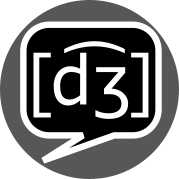- cross-posted to:
- [email protected]
- cross-posted to:
- [email protected]
That’s why, randomly, you, sometimes make, strange errors. (Double space). And sometimes not. (Single space). And change keyboards, and Capitalize Improper Nouns. Etcetera.
That won’t work if you use rather idiosyncratic vocabulary or grammar, such as Unabomber did; for example he wrote “clew” for “clue”, and used lots of uncommon vocab, so it was easy to narrow him down to “Chicagoan, uni degree or higher”.
I donot u derstandd.
Just a general reminder, the vast majority of forensic methods are pseudoscience waiting to be overturned. This includes all forensic linguistics and handwriting analysis.
pseudoscience
Where are you getting this information?
The innocence project is the most common practical source as they have to actively debunk the science in order to secure freedom, but here is a good introductory article with some sources.
But any search of forensics in your favourite journal of choice, especially since 2009, will show an amazing breadth of peer reviewed rebukes of any particular forensic field, from the laughably stupid blood splatter analysis, to things that many take for granted, like fingerprint analysis. It’s nearly all pseudoscientific guess work at best. Right now the only thing that has passed scientific muster is DNA analysis, but only direct comparisons.
Thanks.
I’d argue that Forensic Linguistics is protoscientific instead of pseudoscientific. It lacks the necessary scientific rigour, such as the ability to test its own hypotheses; but the reasoning is usually backed by actual Linguistics, and it’s accurate in a way that protoscience typically isn’t.
The difference is important - a pseudoscience is better thrown away, but a protoscience can be still fixed or at least dismantled for parts.



